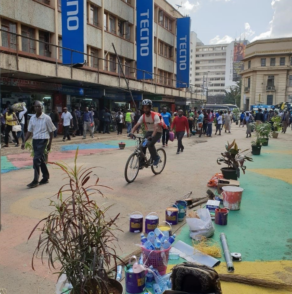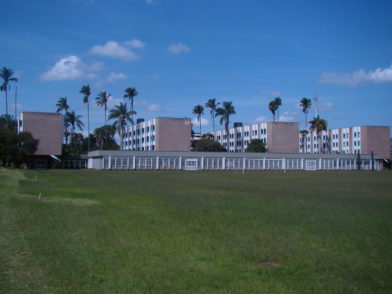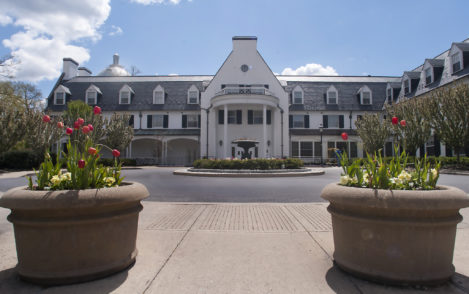Examined how transportation revenue in the Portland Metro Area would be affected by the adaption of autonomous vehicles as the primary transport source. Read the final student report delivered to the local gov/community partner. Sustainable City Year Program Contact Info Megan Banks Sustainable City Year Program Manager mbanks@uoregon.edu (541) 346-6395 University Faculty Contact Greg Dotson […]
Discipline: Law
Models for Community Impact Investing
Clinic law students, who are second or third year students at the University of Iowa College of Law participating in the Community Empowerment Law Project (CELP) explored models for community-driven investment vehicles in two Iowa communities- Webster City and Manning. Read the final student report delivered to the local gov/community partner. Iowa Initiative for Sustainable […]
Revitalizing Eastern Iowa through a Land Bank
Clinic law students, who are second or third year students at the University of Iowa College of Law participating in the Community Empowerment Law Project (CELP), explored strategies, through a legal lens, to decrease blighted properties and increase affordable housing in Eastern Iowa. In particular, they examined whether a Land Bank might be a feasible […]
Read More… from Revitalizing Eastern Iowa through a Land Bank
Enviornmental Law: Green Building, Graywater, and Stormwater
As part of the Sustainable City Year partnership with the City of Salem, five students from the University of Oregon School of Law’s Environmental Law Clinic course researched sustainable building and stormwater management, focusing on topics including Leadership in Energy and Environmental Design (LEED) certification, the use of graywater, and sustainable stormwater management tools. The […]
Read More… from Enviornmental Law: Green Building, Graywater, and Stormwater
EPIC-Africa Brings Student Voices to Walkability Project in Nairobi

From 2018 to 2019, law students from the University of Nairobi, urban design students from the Technical University of Kenya, and city council members worked with project lead Edna Odhiambo to address walkability concerns in the central business district (CBD) of Nairobi. The goal was to sustainably improve infrastructure and road design, reduce hazards, and […]
Read More… from EPIC-Africa Brings Student Voices to Walkability Project in Nairobi
New York City

Created in 2009-2010, Town+Gown is a city-wide university-community partnership program, resident at the New York City Department of Design and Construction (DDC), that brings academics and practitioners together to create actionable knowledge in the built environment. […]
University of Nairobi

EPIC The University of Nairobi in partnership with Nairobi County have joined efforts to advance sustainability and resilience using the EPIC model. Nairobi County is experiencing rapid population explosion, coupled with road expansion and increase in motorization. This current state of affairs does not reflect prioritization of non-motorized transport, particularly, walking. Therefore, residents of Nairobi […]
University of Washington

Livable City Year Website |www.washington.edu/livable-city-year Livable City Year (LCY) links University of Washington students and faculty with a Washington city, county, tribe, or special district, engaging faculty and students across the university to address the community partner’s sustainability and livability goals. The program helps its community partners accomplish critical projects in an affordable way while […]
Pennsylvania State University

Sustainable Communities Collaborative Website |https://sustainability.psu.edu/programs/scc/ The Sustainable Communities Collaborative (SCC) connects university faculty, students, and staff with local communities to address sustainability challenges through an engaged, collaborative effort to meet the partnering community’s sustainability priorities. The SCC networks with its 23 Commonwealth Campuses, leveraging local knowledge, unique programs, and Penn State resources to advance sustainability […]